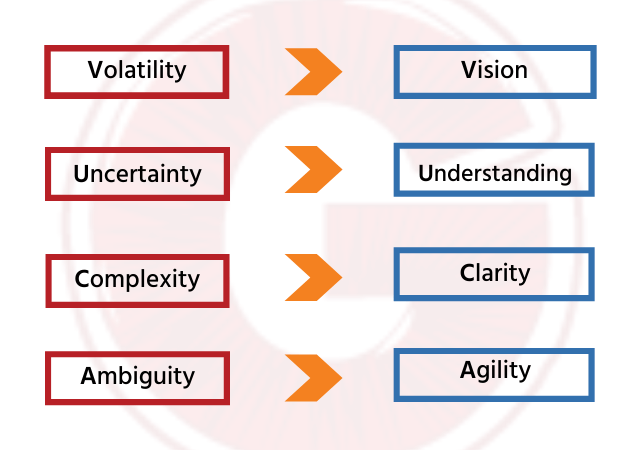By Zion Rufus
Against the backdrop of shifts in attitude toward efficiency vs effectiveness, and the adoption of shorter-range strategic activities over longer-range activities like customer research and product strategy, marketing professionals have expressed divergent views on the division of marketing functions into various sub-functions that have competing priorities.
“The overall function of marketing is broken. Back in the day, marketing was all about longer-range activities that focused on effectiveness, but over the past decade, we’ve jammed more stuff into the bucket called “Marketing”, a bunch of shorter-range efficiency functions – essentially operational support for Sales,” said Chris Walker, a renowned marketing professional and podcaster.
In his podcast, Walker noted that most marketing today gets tons of leads but fail at effectiveness-focused activities that drive actual revenue. He urged the separation of shorter-range versus longer-range activities, adoption of effectiveness over efficiency, and the division of marketing responsibilities.
Validating Walker’s viewpoint, Warren Zenna, Founder of Zenna Consulting Group averred that the lines that separate sales and marketing have become so blurry over the last few years, to the point where they have become ‘almost indistinguishable’.
He stated: “Short-termism is an addictive drug and the technology community has capitalized on this by becoming de facto crack dealers to B2B companies – who will pay anything to get to the finish line faster. It’s not marketing that’s the problem – nor is it sales. It’s the business environment that’s become addicted to automation and attribution platforms.”
Liz Le Breton, a marketing director and consultant does not agree with the notion that marketing as a discipline is broken.
For Breton, the roles and capabilities within it have radically changed over the last decade and businesses are yet to make it through the “re-org” to a place of widespread agreement and how social media managers can actually take on more than 20 different roles.
Dr. Chris Arnold, an ethical marketing specialist who has always seen marketing as a mix of long-term and short-term marketing strategies posited that marketing needs a reset and needs to step back in reality (IRL).
For Arnold, many brands do not understand their consumers, and as a result, a lot of ‘fake’ insights about consumers were never challenged.
He said: “No wonder many brands now say “purpose didn’t sell”. Wrong, bad marketing doesn’t sell. I preach value-alignment. Align your brand to your consumer’s values and you are already in the winning space. Ain’t rocket science. So why don’t more brands do it? Because marketing now lives in a virtual world. We saw with purpose-driven marketing that when they had the opportunity to get it right, 90% got it wrong. Either they made mistake No1 – give the brief to my existing agency (PR, advertising or corp comms) who had no idea and just made it up. Or mistake No 2 – try and sell the corporate strategy, instead of finding out what the customer values (NetZero being one they think is hogwash).”
Christoffer Pettersson agreed that it is important to divide these responsibilities in order to prioritize effectiveness and longer-range planning.
According to Pettersson, traditional marketing functions have evolved over the past few decades to now include a mix of activities with competing priorities.
“Your solution of separating shorter-range efficiency activities under Sales and longer-range effectiveness activities under Product & Category Strategy makes a lot of sense. I also like the idea of consolidating Marketing Data & Tools under Revenue Operations and building a Revenue R&D function to focus on driving revenue. This approach could help align the goals and strategies of Marketing and Sales teams for greater success,” he said.
Katie Michell, Founding Partner and Chief Operating Officer, Narrative Strategies DC supports the splitting of marketing functions.
Noting that there is no one quick-fix to marketing challenges, she advised marketers to keep short-term focused activities and long-term activities separate.
“The reality is, they will always converge and there will always be competing priorities (ST vs. LT), that is what’s good for the buyer versus what’s good for the company. For example, when you have a product launch, the product marketing / category team might own the narrative, but you will have the ST teams focused on immediate revenue. There will always be that push and pull. The only true way to combat this is for everyone to understand the micro and macro environment, have strong communication with each other, and make the right tradeoffs (it will never be perfect).”
John Rougeux, category designer and marketing leader also buttressed the reality of short term results over long term outcomes.
In his opinion, it is much easier to sell and make money from martech products that emphasize short term results that are easier to measure. However, for products that help with strategy, not so much.
“As a result, there is a lot of content from vendors that shows marketers how to improve short term metrics, and very little on strategy. We’ve over indexed on producing (and consuming) this type of education, and over time people have started to conflate lead gen and sales support with marketing itself. This isn’t the only factor, but it’s one that gets overlooked. Marketers need to learn to think for themselves.”
Alik Abrahamyan, marketing professional at EasyDMARC disagreed with Walker’s assessment.
In his argument, Abrahamyan pointed out that these divisions will only work in situations where existing strategies used to promote a product or service are not effective or efficient, and when they fail to achieve the goals of their marketing efforts.
He said: “Marketing is, and will be the process of creating, communicating, delivering value to customers and managing customer relationships in ways that benefit the organization and its stakeholders. And this does not mean that the overall function of “Marketing” is broken. The assertion is peculiar to specific scenarios.”






Comment
No comments found.